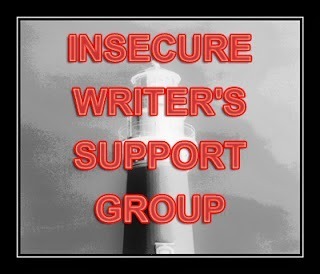Books taught me that my torments were the very things that connected me with all the people who have ever lived
 "Spritzing is not for everyone," CEO and co-founder Frank Waldman told Co.Design.
"Spritzing is not for everyone," CEO and co-founder Frank Waldman told Co.Design."But for digesting emails, social media streams, and news especially, it allows you
to read more in a shorter amount of time. My 87-year-old aunt-in-law just
started spritzing and she loves it." So there’s a new app available and it’s called Spritz and supposedly it lets you read way faster. Friday’s articles touted that a reader could consume 500 words in a single minute. By this week however, claims rose to 1,000 words per minute. I’m just like you in reading these “testimonials” in that I want to know how this is possible.
The science: Spritz works by giving you one word at a time in a 13-character space, and it carefully positions the words so that you never have to move your eyes at all. I guess “eye-movement” is a wasted activity that slows down your reading speed.
But then there’s this nagging “second question” that pops into my mind: why is the world in such a hurry? Maybe I’m old-fashioned or perhaps I’m looking for that elusive experience only hinted upon in EliseFallson’s blog (that of total immersion in a story), but I seriously think I could get no pleasure from Spritz. It seems like a tool that would be useful when trying to cram for an exam. But I graduated from college twenty years ago and (barring the occasional certification that needs renewing) I don’t intend to pursue serious college work again until after I buy my first home.
 I suppose my long time insecurity about books and whether people are reading them or not begins with a general concern that 1) people’s reading habits are changing and 2) this is going to have a very real impact on my life.
I suppose my long time insecurity about books and whether people are reading them or not begins with a general concern that 1) people’s reading habits are changing and 2) this is going to have a very real impact on my life.If we begin to live in a world where people no longer value books as an immersive getaway, I think our ability to communicate effectively might become impaired. This goes beyond the plethora of spelling errors that I see every day in all walks of life. A few years ago, spotting spelling errors on public signs was funny and cause for a well-placed facepalm. But in 2014, I’m no longer laughing. I recognize it now as a symptom of a greater malaise affecting a whole generation of people who could care less whether something is made to any quality standard.
There’s also evidence (some anecdotal) that people who read fiction for pleasure are more open-minded and better able to deal with uncertainty. And in an essay published in Time Magazine, author Annie Murphy Paul claimed that “the deep reader…enters a state likened to a hypnotic trance. The combination of fast, fluent decoding of words and slow unhurried progress on the page gives deep readers time to enrich their reading with reflection, analysis, and their own memories and opinions.”
On Elise’s blog and her post on “immersion” I expressed my opinion thus: The inimitable power of literature is to give context and meaning to the trials and triumphs of living. Author James Baldwin once put this thought this way: ‘You think your pain and your heartbreak are unprecedented in the history of the world, but then you read. It was books that taught me that the things that tormented me the most were the very things that connected me with all the people who were alive, who had ever been alive.’ I'd say there is no intellectual equivalent to allowing oneself the time and space to get lost in another person’s mind, because in so doing we find ourselves. And that is the crux of my fear.
So ladies and gents, if people are no longer giving themselves time to find themselves and connect with others through books, how on earth will they ever have the context to understand me as a person? After all, it is through ignorance and the lack of understanding that the seed of “intolerance” starts to bear fruit.
Published on March 05, 2014 05:39
No comments have been added yet.



